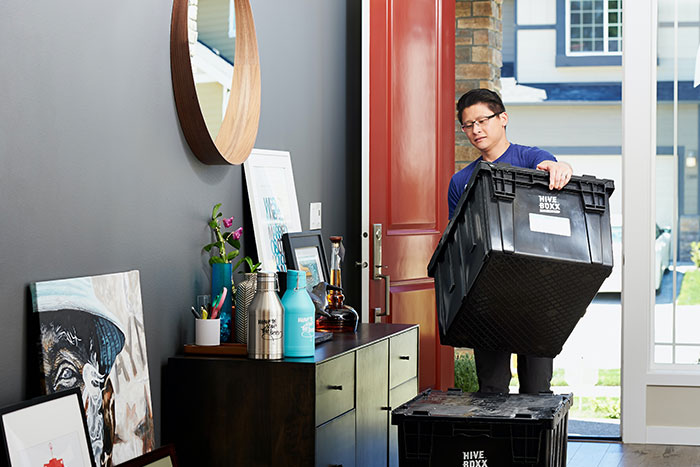Moving out on your own can be an exciting new chapter of your life. However, it is one that must be carefully planned out if you don’t want to deal with the unexpected costs associated with moving into your own place. To make sure that you are prepared long before you begin packing your things, here are some answers to the commonly asked question, how much do I need to save before moving out?

1. Make sure that you have plenty of money stashed away for necessities.
If you have yet to move out on your own, there are two things that you will soon learn cost a lot of money: rent and utilities. Chances are that you have already found your ideal living situation, in which case, you are already familiar with how much your flat will cost you (and roommates, if you have them) monthly. However, you will also have to save for other rent expenses like first month’s rent, last month’s rent, and a security deposit (along with additional funds you may need if you run into any hardships along the way). This way, you have at least the bare minimum needed to cover the initial costs of renting out your new place.
Another thing you should save for ahead of time is your utilities. Many people forget that renting comes with expenses besides rent, such as utilities such as electricity and water. The best thing to do is put aside extra money for these utilities and find ways to begin saving on energy before you make the move. One great way to do this is to seek out the most affordable electricity providers in your area so that you sign up with one that will help you keep your overall utility bill down. If you are looking to be frugal before and after your move, compare energy providers with iSelect to get started.
2. Save up for the move itself and any items you may need after the move.
Whether you are moving on your own or hiring movers, there are many costs associated with getting your belongings to your flat. Some of these costs may include rental fees for trucks, gas for transporting your own belongings, or the rates that certain moving companies will charge if you plan on seeking out the help of them instead. Assessing these costs ahead of time will help you ensure that you have these funds when you begin the moving process.
You should also take the time to look at what you have and what you will need to buy for your new flat. Some items that you may need to purchase could include small things like bathroom products or larger purchases like appliances not provided with your rental. Take some time to sit down and come up with a list of things you need. Then, set aside that money so that you can purchase these things when you are ready.
3. Consider your current budget and recurring expenses.
Once you’ve moved in, you won’t have to worry about unexpected expenses so much as the cost of living. For example, groceries, internet, and your mobile phone are all things you will have to pay monthly that you rely on to get through your day-to-day. Consider your budget right now and make sure that you have plenty of savings and room to afford these necessities.
That said, you should also make sure that you are making smart financial choices as you move forward. For example, if you listen to experts like Mark Wiseman for investment advice, continue making the smart choice to invest so that you are steadily building your financial independence and securing your future. This will help you to build your financial intelligence so that you grow along with your money. While you may have to compromise on some of your expenses, savings and investments should be the last to go or be reduced.
Moving can be stressful, but planning makes it easier to deal with. Use the tips provided above to build your savings so that you can cover any costs needed when you finally make the choice to move out.
